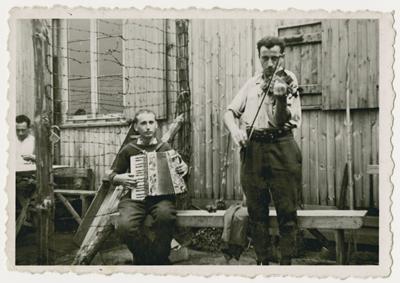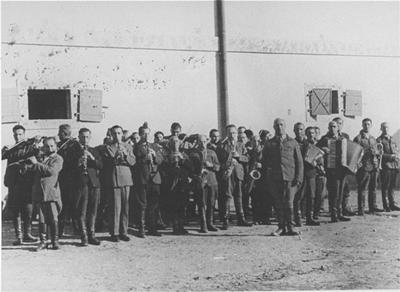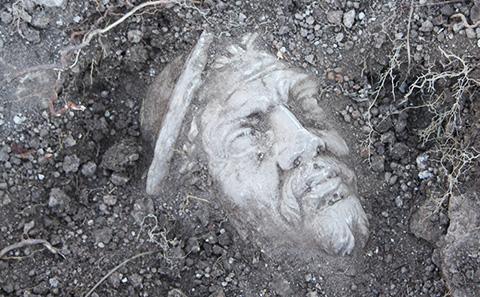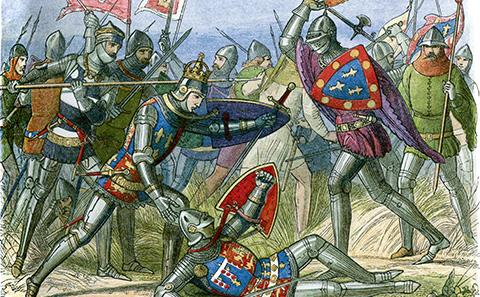Documenting the Holocaust with music
Uncovering human stories of crisis through song
It was one of the darkest chapters in modern day history, but even in those bleakest of times music has been uncovered which adds another dimension to our understanding of the Holocaust. Created by those who were living in ghettos and concentration camp communities, songs and music are now being brought to the public’s awareness thanks to Dr Shirli Gilbert, Associate Professor of History at the University.
Shirli is keen for the unique body of music to not be seen as a sentimental re-imagining of what life was like during the Holocaust, but rather to bring a deeper understanding of that time while safeguarding a precious archive.
She says: “I have pushed against a narrative that wants to sentimentalise music – the idea of the triumph of the spirit – because the reality is that a lot of people couldn’t maintain their spirits. I don’t want to make things seem better than they were. At the same time this cultural practice undoubtedly gave a lot of people solace and comfort. It gave them a way of connecting with their past, of connecting with their identity and documenting what was happening.
“Songs were a brilliant way of documenting if they couldn’t write down what was happening. They used melodies as a mnemonic device and added lyrics, so it was a way of documenting what was happening for posterity.”
At a moment of crisis in Europe – ravaged by war, with 11 million displaced people roaming the continent – people turned their attention to recording these fragments of a lost people. Now we are bringing them to the public’s attention so they can hear for themselves these stories.

Understanding a dark chapter in history
In collaboration with the non-profit Jewish organisation World ORT, Shirli has developed an educational website, which explores some of the recordings made at the time.
That collection has now risen to around 350 recordings of music and song, some of which were faithfully collected through what Shirli described as ‘salvage ethnography’, people who were devoted to ensuring this part of Jewish cultural history was not lost.
“Most of the music was not written down at the time so we owe its existence to a series of collectors working in the immediate post war period,” she says.
“They travelled across Europe either transcribing music or collecting songs and testimonies from surviving witnesses.
“A community had been destroyed and these people saw their work as helping to preserve the fragments.”
Shirli, Director of the Parkes Institute – a unique centre at the University devoted to the study of Jewish/non-Jewish relations – explains that music was a unique documentation of that time.
She says: “For a song to survive it needed to be sung. And if people were singing it, the music must have been resonating with them in some way.

“From the very fact that these examples survived, we can extrapolate how important they were for the people who were singing them.”
Shirli suggests that the music deepens our understanding of the Holocaust by giving a voice to hundreds of individual human stories.
She says: “This was a big body of material that was created at the time itself, as it was happening, as people were trying to process what was going on with them and trying to deal with all the uncertainty.
“Hundreds of new songs were created, but very little has been done with them.
“I think that exposing these songs is an important way of listening to people’s experiences and getting a different perspective across about how they understood what was happening to them.”
Engaging and commemorating
One of the aims of Shirli’s work is to encourage more widespread use of this material in teaching and commemorative events.
The work to bring them to the public’s attention took a major step forward with a sold-out concert at London’s Wigmore Hall titled: Music on the Brink of Destruction, and broadcast by the BBC. The concert also saw the launch of the ORT Marks Graduate Outreach Fellowships, which will support work on the project over the next 10 years.
Part of the students’ remit will be to continue to expand and promote the website’s work. Shirli said of the work: “At a moment of crisis in Europe – ravaged by war, with 11 million displaced people roaming the continent – people turned their attention to recording these fragments of a lost people.
“Now we are bringing them to the public’s attention so they can hear for themselves these stories.”
Images supplied by the United States Holocaust Memorial Museum
More about Shirli's research
You may also be interested in:

Making the past a virtual reality
Using cutting-edge technology to bring ancient civilisations to life.

The truth about Agincourt
Challenging the myths around the famous battle of Agincourt